Uncategorized
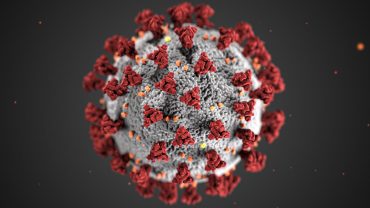
March 16, 2022
Competing with COVID: Researcher suggests varying from vaccines to fight virus
COVID-19 virus particles have spike proteins, represented in red, that attach to receptors on host cells. Antivirals block the receptors on host cells so the virus cannot infect more cells. | Creative Commons Photo By Cara Penquite | Bond LSC Vaccines were the light at the end of the tunnel throughout the COVID-19 pandemic, but virus mutations threaten to extinguish hope of a quick end to the pandemic. Kamlendra Singh turns towards antivirals as the next step. “There will be a time we will find an antiviral which will be very difficult for the virus to mutate…
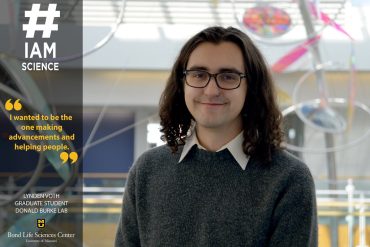
March 4, 2022
#IAmScience: Lynden Voth
By Cara Penquite | Bond LSC Invested in two to three hobbies at a time, Lynden Voth is not afraid to try something new. His flexible mindset – applied equally in his personal life and research – led Voth to discover his passion for molecular pathogenesis and therapeutics. “I was kind of in a completely different headspace when I first came here, and then as I started to do some research and understand what the labs were working on, I ultimately found an interest that I was not aware of before,” Voth said. Voth is a second-year…
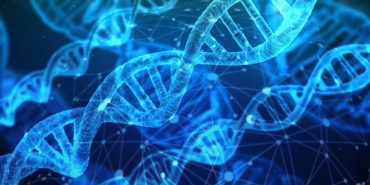
March 3, 2022
Protecting Plants: Researchers identify genes responsible for vital antimicrobial proteins
DNA is the genetic material that determines the characteristics of plants and animals. Using CRISPR gene editing, researchers altered the characteristics of rice plants. | Creative Commons Photo by Pixabay By Cara Penquite | Bond LSC A tickle in the throat, a stuffy nose, congestion . . . the tell-tale signs of a cold are familiar to most, and many know that with enough rest, the immune cells on standby in the human body will destroy any invaders. But what happens when plants get sick? The Bing Yang Lab from the Bond Life Sciences Center at the…
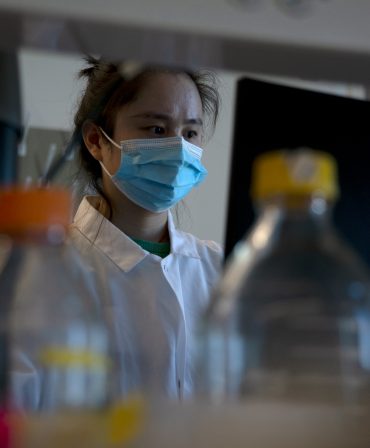
Feb. 17, 2022
Pancreatic tumor composition provides insight on treatment response
Jing Zhou focuses the microscope through her computer. The microscope feeds its view directly to her screen so Zhou can see the pancreatic cells. | Photo by Cara Penquite, Bond LSC By Cara Penquite | Bond LSC Not all tumors are created equal, and potential treatments aren’t universal. When it comes to pancreatic cancer, surgery and radiation often do more harm than good due to its rapid growth and ability to spread to the liver. Searching for alternative treatment options, Jing Zhou focused her research on immunotherapies. That led Zhou and her team to identify the sequences…
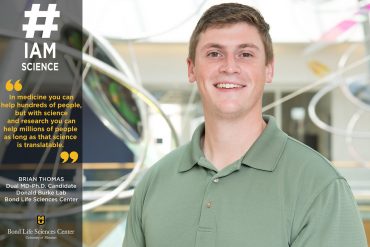
Oct. 22, 2021
#IAmScience Brian Thomas
By Madalynn Owens | Bond LSC Brian Thomas’ passion for science has been shaped by the excellent mentors he has had throughout his scientific and academic career. At Mizzou, that came from Donald Burke-Aguero. “His mentoring style really fit with what I needed going forward,” Thomas said. “In medicine you can help hundreds of people, but with science and research you can help millions of people as long as that science is translatable.” Thomas spent his first rotation as a medical student in the lab of the Bond Life Sciences Center scientist and professor of Molecular Microbiology…
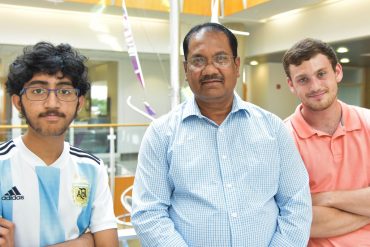
July 16, 2021
How a pandemic spreads
Saathvik Kannan, Kamal, Singh, and Austin Spratt, worked together at Bond LSC to identify new SARS-CoV-2 variants. | photo by Davis Suppes, Bond LSC COVID-19 analysis looks at variant spread By Davis Suppes | Bond LSC Variants of the virus that causes COVID-19 continue to plague the world with spikes in infection, keeping the current pandemic from being fully controlled as Severe Acute Respiratory Syndrome Coronavirus-2 (SARS-CoV-2) infections remain unmanageable in some parts of the world. Researchers at Bond Life Sciences Center and the University of Nebraska Medical Center (UNMC)…
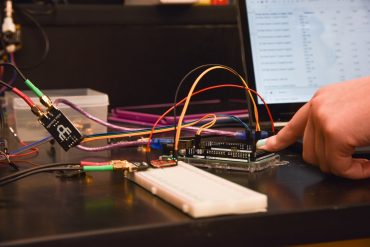
May 17, 2021
BIPS: A Semester in Review
Maria Lusardi showing how she connects the pH sensors to the Arduino. | photo by Becca Wolf, Bond LSC By Becca Wolf | Bond LSC As the semester comes to an end, Bioinformatics in Plant Sciences (BIPS) close the school year with a lot of accomplishments: one team earned Best Abstract honors at the Mizzou Undergraduate Research Forum, three teams have papers in the review process, one team got their research published in a journal, and two BIPS members were even selected to share their work at the Research Day in Jefferson City, MO. These teams did not…
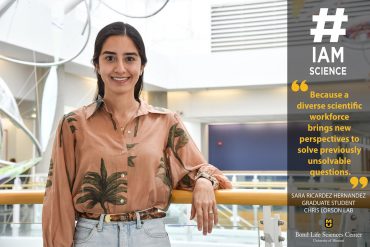
May 7, 2021
#IAmScience Sara Ricardez Hernandez
By Becca Wolf | Bond LSC As an undergraduate student, Sara Ricardez Hernandez did not have mentors that exposed her to the many opportunities available for underrepresented students — like summer programs and other research initiatives — but now a graduate student and a Life Sciences fellow, Ricardez Hernandez wants to make sure that no one else is ever in that boat. “I really like advocating for other people like myself. For example, the university that I went to for undergrad had very little mentoring for minority students, so I want to help people not only be able…
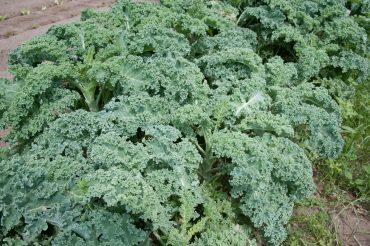
April 28, 2021
Lab explores link between genetic differences and domestication in kale
Tatiana Arias and Chad Niederhuth studied the plant, kale, in this publication. | “Kale” by photofarmer is licensed under CC BY 2.0 By Becca Wolf | Bond LSC It is said that variety is the spice of life. When it comes to kale, much of that variation derives from domestication, and genetic differences that evolved over thousands of years resulted in different color of leaves, nutritional value, and habit and length of growth. Understanding the links between traits and genes could one day help plant scientists create better vegetables for…
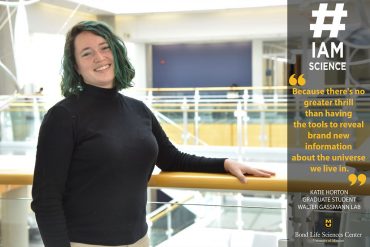
April 23, 2021
#IAmScience Katie Horton
By Becca Wolf | Bond LSC Katie Horton feels most at home in the shady woods of the Southeastern United States, so much so that she can name and give out a few facts about almost all of the plants. Horton, a graduate student in the Walter Gassmann lab at Bond Life Sciences Center, moved to Columbia in August, and has a lot to learn about plants native to the Midwest. “One of the things I’ve struggled with so far is that I don’t know many of the plants here in Columbia by sight. There are some…
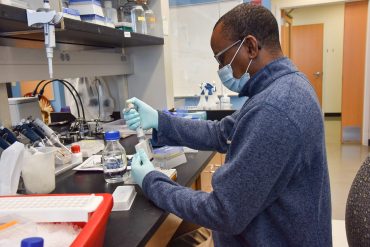
April 14, 2021
Trying to understand amino acid regulation for the good of humanity
Abou Yobi working in the Ruthie Angelovici lab. | photo by Becca Wolf, Bond LSC By Becca Wolf | Bond LSC Many works aimed at improving seed nutritional quality have been faced with limited success because of the lack of clear understanding of how amino acids are regulated. Abou Yobi wanted to get to the bottom of this. Yobi, lab supervisor in the Ruthie Angelovici lab at Bond Life Sciences Center, has been working on understanding how amino acids are regulated in seeds for years. “We can use that understanding to improve seed quality in crop plants so…
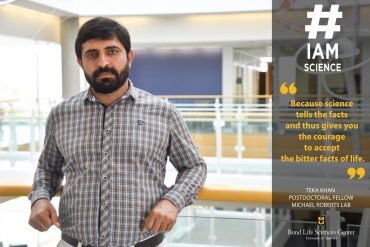
April 9, 2021
#IAmScience Teka Khan
By Becca Wolf | Bond LSC Growing up in the countryside of Pakistan, Teka Khan did not have a science class in high school. In fact, his first science class was in college and it was in English — a language he did not know at the time. “First I had to understand the word meaning. So, what I did for physics, chemistry, and biology is I bought a dictionary,” Khan said. “I had to translate each and every word, and then I had to understand them, so I wrote down the meaning of each word. Sometimes I…